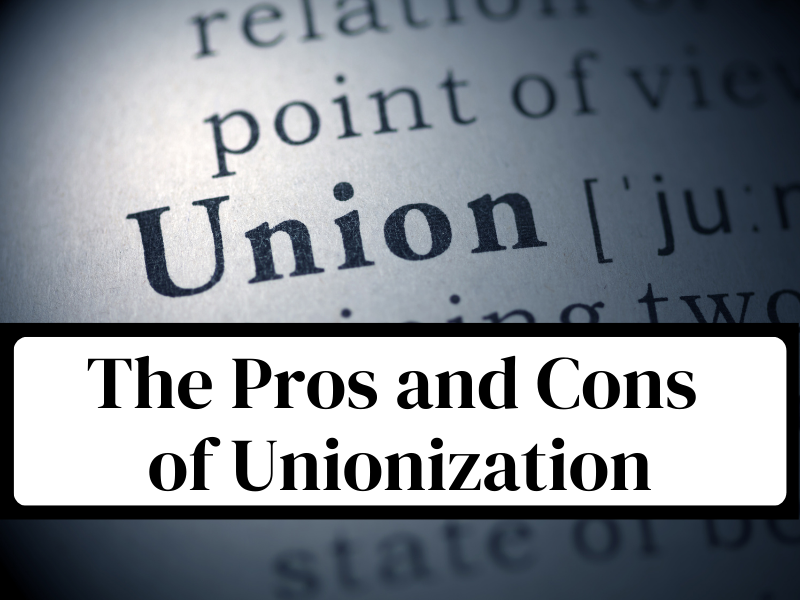The Pros and Cons of Unions
Written by Cooper & Friedman PLLC on July 12, 2023

While unions have played a large and crucial part in the developing landscape of American industries and the workplace, there are plenty of anti-union workers out there who do not, under any circumstance, want to be a part of a union. Both workers that are all for unionization and those who avoid them are perfectly valid when it’s their job and means of living being bartered.
The pros and cons of a union stretch across a broad spectrum, and here, we’ll revisit all the good things we learned in “What Does It Mean When Workers Unionize?” and explore some of the bad we haven’t. If you’d like a more in-depth study of the demographics of unionization across the US, visit Maryville University’s Human Resource Management program’s infographic!
Pros of Unionization
- Gives workers more impact in their workplace.
- Creates a means of communication and transparency between employers and employees.
- Can result in livable wages, job security, better benefits, and more job satisfaction.
- Can inspire necessary change in the power dynamics of a company.
Cons of Unionization
- Union leaders don’t always act in the benefit of all employees.
One thing to keep in mind with unions is that it is still a democracy. The majority wins, and the leaders are trusted to implement and negotiate on the behalf of the larger unit. In a perfect world, perhaps this works, but many union leaders have historically given in to greed and personal gain. If a leader does not act in the interest of the union, then workers can suffer. Unions also are not exempt from discriminatory and unfair practices, either, so there have been cases of minority workers suffering from union decisions.
- Unions cost money.
Union dues, fees, and fines can be anything from monthly payments to a certain percentage of each paycheck. Either way, you have to pay to be in a union, and for those who live paycheck to paycheck, even the smallest due can make a difference. Considering that, at the end of the day, no salary increase is necessarily promised with the representation of a union, it’s a personal decision whether or not to join and take that risk with the money going towards change that may or may not make a difference.
- Unions have a high risk of strikes.
While unions attempt to build a better, more understanding relationship between employers and employees, it can sometimes do the opposite. Negotiations don’t always work out and the inability to reach a compromise can end in a strike. While it’s true that being a part of a union on a strike means that an employer cannot “fire” you, they can employ a permanent replacement to take over your position and they are not obligated to pay you while on strike. If you are not a part of the union or are a part of a union but cannot afford a strike, then the majority mindset can hurt your job environment and even cause contention between striking members and non-striking members.
- Unions can create the opportunity for your job to become more difficult.
Due to a lack of incentive to work hard and do their part, some union members may see union representation as an opportunity to create slack in the workforce. If benefits are promised for all union members regardless of how hard they work, then there will be some people who take advantage of being a member without contributing to the regular work environment. Especially in large or unsupervised work environments, it can seem like unions lower your satisfaction at work because of other workers that exploit the system.
Unions and the Law: Cooper and Friedman Have Your Back
Whether you’re a part of a union and suffering from unfair workers’ rights or you’ve been physically hurt due to an increased workload that was caused by a union strike or understaffing, Cooper and Friedman are here to help you as experienced workers’ compensation lawyers.
If you or someone you love has been a victim of unfair workers’ rights or workers’ compensation in the State of Kentucky and are in need of an experienced workers’ compensation attorney, give the lawyers at the Cooper & Friedman law firm a call. The attorneys at Cooper and Friedman PLLC have over 50 years of combined experience defending the rights of work injury victims. Contact us with questions you might have or schedule a free case consultation with an attorney by calling 502-459-7555 today.

